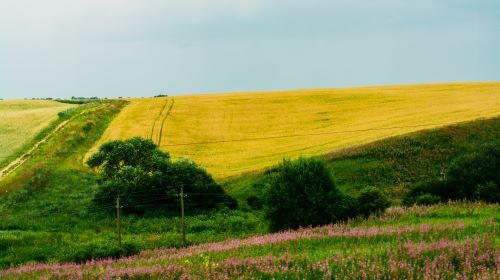
29 July 2022
This week the National Drought Group have warned that the UK will be facing a drought during August. The drought could lead to a ban on farms irrigating crops and is expected to affect yields with the lack of water drying and hardening soils making it harder to harvest crops.
With the Conservative Party’s leadership election underway, the government announcement on banning peat soils from being used in horticulture has been postponed. Consultations on a ban have already been held, but environmental NGOs are urging the government to immediately ban the use of peat in gardening, with 80% of UK peatlands degraded and emitting 5% of UK greenhouse gas emissions.
The Nature-Friendly Farming Network has released a new report highlighting what needs to change in our food system in order to protect our environment. It shows that high input use, including pesticides and synthetic fertilisers, is costly to farmers and is causing soil degradation. UK farming was concluded as having the means to improve and lock carbon into healthy soils.
The UN Food and Agriculture Organisation (FAO) warns that 90% of the Earth’s topsoil is likely to be at risk by 2050. To draw light to the issue of deteriorating agricultural soils, the FAO stated this week that the equivalent of one football field of soil is eroded every five seconds on the planet. It now calls on countries who are members of the Global Soil Partnership to take more action, including monitoring and mapping soils.
A new report on the State of the Environment in Australia rates its soils as ‘poor’ and deteriorating’. There are concerns that industrial farming and its repeated ploughing, irrigation, and use of fertilisers are damaging Australia’s soils which are old and infertile, having been unaffected by glaciers or volcanoes compared to other parts of the world. In response, scientists call on the need to change farming practices to particularly protect soil organisms and fungi.
In the UK several grassroots groups are seeking sustainable soils through land justice. Groups like Black Rootz in London and Land In Our Names (LION) are supporting underrepresented communities, lead community-food movements and access land. Such groups are pursuing farming and growing practices that bring about soil health and social justice, often highlighting the historic roots of these sustainable practices.
Research is analysing soil microbiomes and their potential in ensuring plant resilience against disease. The research is aimed at finding a bacteria that will fight the cause of potato blight for the active compound of the bacteria to be harvested and used to protect potatoes from blight.
A bacteria that causes a tropical disease has been found in soil in the US. The tropical disease is largely only found in tropical climates but has been found in the soil and groundwater in the US. People can get the disease through the soil coming into contact with a cut on a person’s body, and can lead to pneumonia and bleeding, but also does not affect some healthy bodies. Contaminated soil is likely to have been the cause of the bacteria.